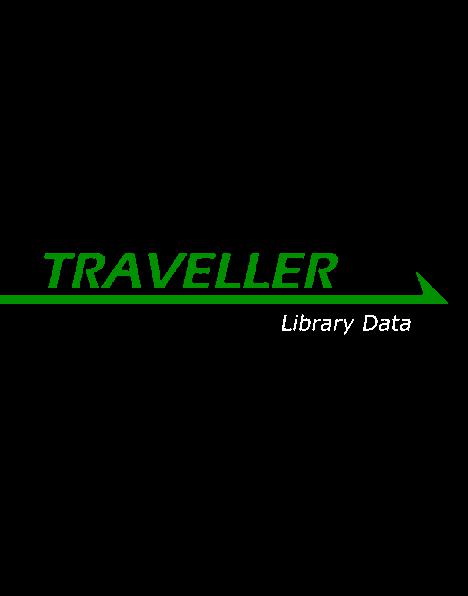Mongoose Traveller: LBB9: Library Data
This review originally appeared on rpg-resource.org.uk in 2010, and is reprinted here and in the September 2015 issue with permission.
 LBB9:
Library Data. various authors/contributors.
LBB9:
Library Data. various authors/contributors.
Mongoose Publishing http://www.mongoosepublishing.com
70pp. Softcover (digest size) or PDF
US$19.99(S)$11.99(P)/UK£12.99(S)£7.79(P)
Right from the very beginnings of Traveller, one of the joys of the game was the impression of a whole universe out there, ready to be explored. A feature of this, even back then and more so as the Information Age has developed far more than Marc Miller and the rest might have imagined, has always been the ability to pull up data about those places your character might be going to… even in the days of those ‘little black books’ there were a couple entitled ‘Library Data’ that contained the sort of information a character might turn up if he enquired about a place or a thing he’d heard about, neatly encapsulated so that the Referee could either read it out or just point to the book. Everything was ‘in character’ and free from any game spoilers, something you could let your players browse through as much as they wished without risking anything you didn’t want known yet coming out.
This book is a worthy successor, presented in a similar manner and every bit as useful to player, character and referee alike as the original!
It pretty much dives straight in, with a scant paragraph explaining that the records herein are the sort of information that would be thrown up in a computer search on a given keyword before starting with ‘A’ and so on. Neatly, it reflects the same sort of problem that besets those who struggle with a Google search—you need to know what you are looking for: apparently computers in the far future are no better than today’s at interpreting vague and woolly requests. Ask Google for ‘that expensive hotel in the Gulf states’ and you won’t find the ‘Burj al Arab’ easily; just so in the far future: you need to know what you want to know about!
If you are not desperate for a given piece of information right this instant, it can be quite fun to flip through, if a bit disjointed by the very nature of the presentation. The style is very uniform and consistent, clear and authoritative in tone. Whilst it is accurate in terms of the Official Traveller Universe (OTU), individual Referees can of course make their own decisions as to how accurate this ‘public information’ actually is within the context of their own game. It would also be relatively straightforward to devise similar entries on matters of your own devising, ready to answer in-character queries from your players.
As well as the ‘encylopaedia’ entries, there’s the Emperor’s List that runs through the succession of rulers of the Third Imperium for the past thousand years right up to the current incumbent, Strephon. This is followed by some useful charts equating Tech Level to various standards recognisable to real-world present-day readers (especially those who read enough science fiction to know what, say, a Dyson Sphere might be!). A timeline chart shows events in the entire OTU as compared to Earth… the Zhodani were spacefaring while our ancestors were building pyramids! These charts put things nicely into context.
As a game resource, it is an excellent and accessible presentation of ‘what an educated character probably knows’ about any topic from the AAB to Zhodani. By necessity it can be a bit of a thumb-nail sketch—and often there will be more information in other books for those who want to go into a topic in detail—and sometimes it’s a bit simplistic: any far future kid already knows far more about air/rafts than the couple of paragraphs here… but it has also been written with one eye to the age-old gaming problem: characters know far more about the reality in which they live than their players can be expected to! If you run or play in Traveller campaigns that use the OTU to a greater or lesser extent, this book is well worth having as a handy reference!
 Freelance
Traveller
Freelance
Traveller